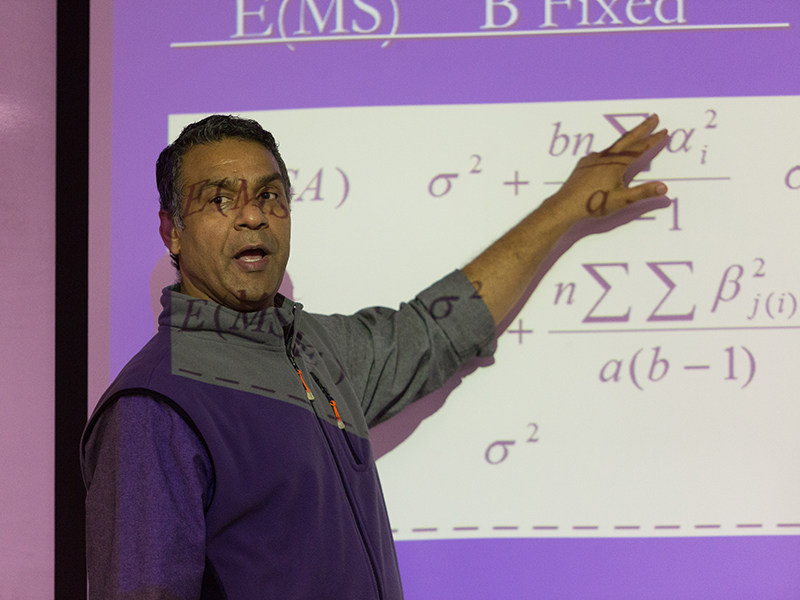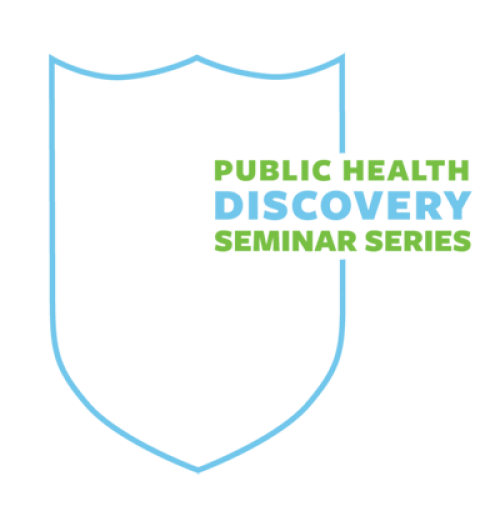Public Health Discovery Seminar Series

About the Seminar Series

Interested in public health? Join the Weatherhead School of Public Health and Tropical Medicine faculty to learn more about ongoing research and hot topics in a wide variety of public health disciplines in our ongoing virtual seminar series.
All seminars will be uploaded and added to a YouTube Playlist.
Seminar Schedule
Contours of Care: A Public Health Perspective on Pediatric Food Allergies
Tuesday, February 10, 2026, at 12:00 PM until 1:00 PM
Denys Symonette Mitchell, Doctor of Public Health Student, Department of Social, Behavioral, and Population Sciences
This seminar integrates clinical insight, public health frameworks, and structural analysis to reframe delayed pediatric food allergy diagnosis as a marker of systemic inequity. The session aims to equip participants with tools to interrogate diagnostic practices through the lens of structural competency and institutional accountability.
Register here!
Rubber Re-Vulcanization: A Case Study for Health
Tuesday, February 24, 2026, at 12:00 PM until 1:00 PM
Dr. Rustin Reed, Assistant Professor, Department of Environmental Health Sciences and Program Director, Industrial Hygiene
Most options for recycling of rubber involve "crumbing" - breaking waste rubber into small pieces to be included in new materials. Attempts to re-vulcanize have so far proven to have poor efficacy. Join Environmental Health Sciences Assistant Professor and Program Director of the Industrial Hygiene program, Dr. Rustin Reed, on a health-focused journey as we learn about an innovative approach to re-vulcanization developed by a small start-up company. His seminar will discuss an occupational health exposure assessment conducted on-site and the potential environmental health impacts of this cutting-edge technology.
Register here!
When I Say...Health Equity
Tuesday, March 24, 2026, at 12:00 PM until 1:00 PM
Maranda C. Ward, EdD, MPH, Alumni, Associate Professor and Director of Equity at GW SoM, Department of Social Behavioral and Population Sciences
Despite there being no universal definition of health equity, join WSPH alumni Dr. Maranda C. Ward as her seminar will offer framing language to understand the distinguishable but interrelated concepts of health equity, health inequity, and health disparities.
Learning Objectives:
1. Distinguish between the interrelated concepts of health equity, health inequity, and health disparities;
2. Explain how social justice is used as a tool to advance health equity;
3. Describe how the social and structural determinants of health impact health equity.
Register here!
Immigration and Health
Tuesday, April 21, 2026, at 12:00 PM until 1:00 PM
Dr. Mark J. VanLandingham, Professor Emeritus, Department of International Health and Sustainable Development
Immigrants have very different health profiles with respect to non-immigrants. Not all of these differences are negative. This seminar will provide an overview of some of the principal underlying causal mechanisms driving these differences; will highlight some work by Dr. VanLandingham and other Tulane faculty investigating these mechanisms; and will recommend some coursework and project opportunities at Tulane for students interested in the health of immigrants and other mobile populations.
Register here!
Between the Dashboard and the Bedside: Bridging Data, Operations, and Leadership
Tuesday, May 5, 2026, at 12:00 PM until 1:00 PM
Molly Mallory, MHA, Alumni, Director of Strategic Insights at Ochsner Health, Department of Health Policy and Management
This seminar examines how health systems translate data into operational and clinical practice, drawing from experience across clinic operations, health system analytics, and executive strategy. Please join Molly Mallory, WSPH Alumni, as she explores the structural and behavioral disconnects between measurement and reality, highlighting how human behavior, operational constraints, and differing professional perspectives shape system performance beyond what dashboards alone can capture. The session advances a leadership framework grounded in flexibility, humility, and human-centered design, positioning data as a strategic guide rather than a substitute for understanding real-world care delivery.
Register here!
Request More Information
Interested in learning more about our graduate programs? Fill out this form, and we’ll be in touch.
